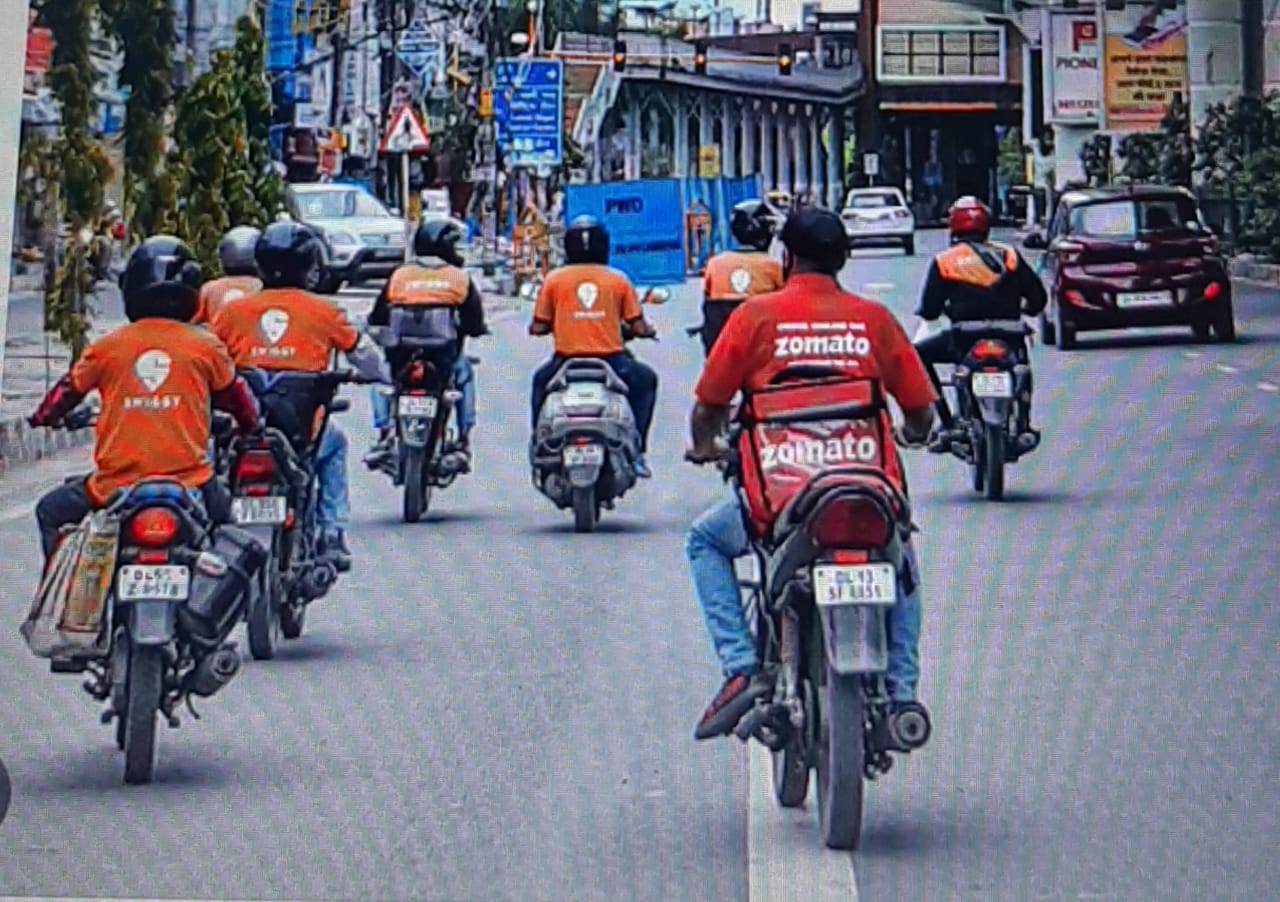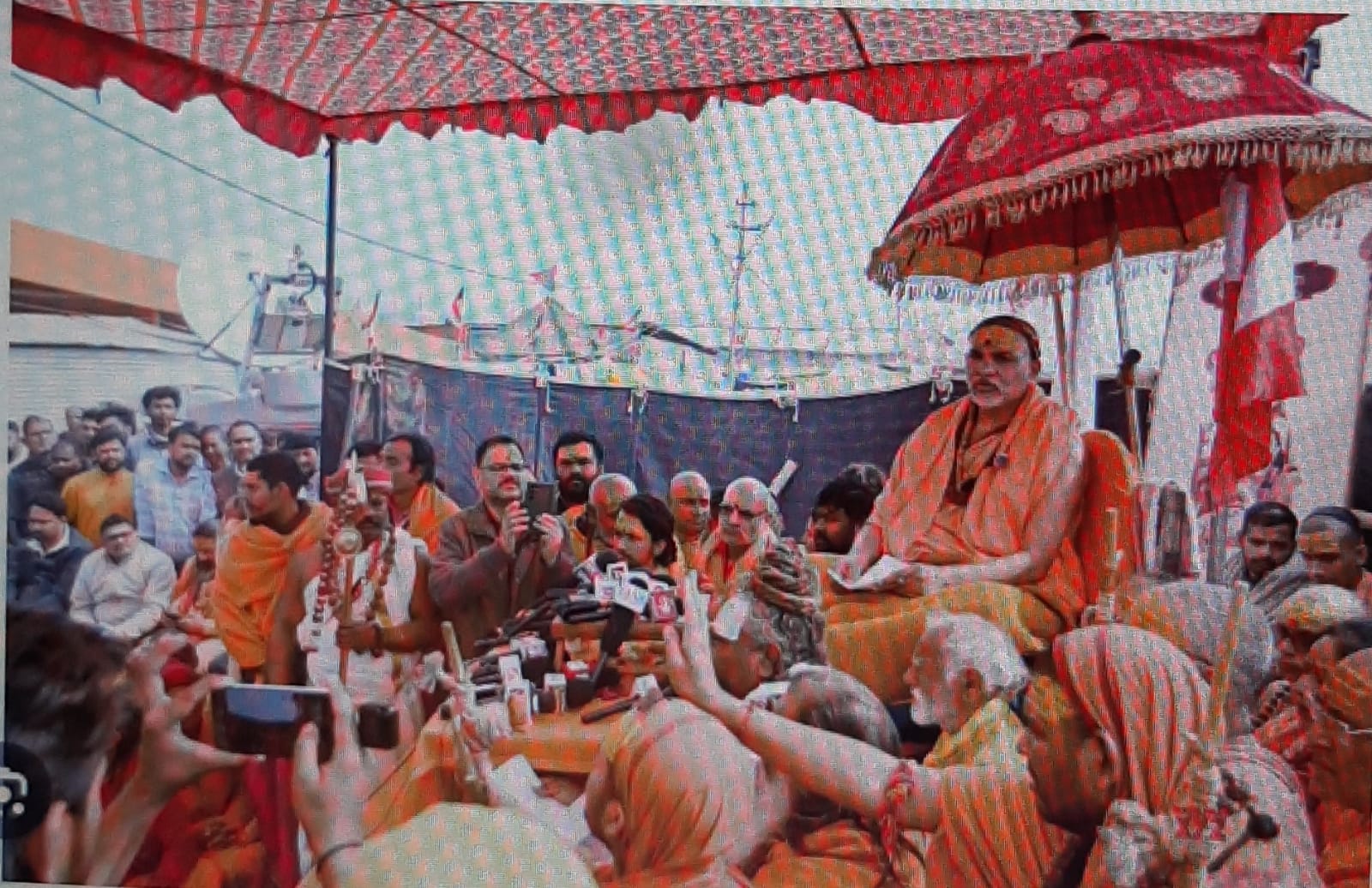Travails of workers in the Gig Platform Economy: the more things change, the more they remain the same

It is evident that platform workers in the Gig economy have virtually no power to negotiate with the platform owners. All terms and conditions are decided and set unilaterally by the promoters. The legal fiction of ‘partners’, ‘independent contractors’ has been created to safeguard the interests of the promoters/entrepreneurs whose commitment appears to be to first seek venture capital, raise funds from the market, enhance valuation of the company and then sell and move out. In this exercise, gig workers are mere puppets, writes former IAS officer Sunil Kumar
News reports regarding death of delivery executives while at work[i], regularly published in different newspapers, at best, catch a fleeting glance of readers. But each one of them narrates a deeply moving human story. Response of the companies is generally to shrug off primary responsibility and focus on humanitarian assistance[ii] so as to offset negative publicity.
The story surrounding the rise and fall of electric mobility company BluSmart earlier this month drew attention to the plight of about 10,000 driver executives who just received a message on their smart phones informing them that their services had been terminated and they needed to immediately deposit the vehicle.[iii] Several of them had not been paid their dues for several weeks in a row. Most of them have returned to their villages unsure of what future holds for them.
Another news item published in the Hindustan Times[iv] reports about a two-day strike by some 150 delivery executives of Blinkit at Varanasi, Uttar Pradesh. Their demands include fair pay, better working conditions and cotton uniforms. All who participated in this public protest have been reportedly suspended by the company and forced to sign an agreement with the company. In a way, these reflect the plight of gig workers, who face an uncertain future, have no job security and are worried about how to make ends meet. Even collective action is met with individual retribution and there is nothing that gig workers can do.
An average reader would ask incredulously were these issues not resolved in the last century? How has this come about?
In the last fifteen years, there has been a sharp rise in the number of workers engaged in the Gig-Platform economy – from about two million in 2010 to over 7.7 million by 2020-21 and is likely to employ over 23.5 million workers by 2029-30[v]. This has been facilitated by the increased penetration of internet and use of smart phones. Covid pandemic (2020-22) acted as a huge multiplier force and what started in ride-sharing sector (Ola & Uber) in metropolitan cities in 2010 has now spread to Tier II and Tier III cities / towns and covers delivery of groceries & prepared food (Blinkit & Zomato/Swiggy). Now we have platforms like Urban Company which provide a range of services to consumers through their partners. In this paper we will examine the travails of workers in the Gig-Platform economy.
In India the share of workers employed in the organized sector has remained in the vicinity of 8 to 10 percent of the workforce. Nearly 90 percent of workers have been consistently employed in the unorganized / informal sector. After 1991 what has changed is that nearly 50 percent of the workers employed even in the organized sector are now contract workers working through service providers. These workers are not on the rolls of the company where they work.
Gig workers have been defined in Chapter 1, Section 2(35) of the Code on Social Security, 2020 as “a person who participates in a work arrangement and earns from such activities outside of a traditional employer-employee relationship.” As per Section 2(e) of the Rajasthan Platform Based Gig Workers (Registration & Welfare) Act, 2023, the gig worker has been further defined as a person who performs work or participates in a work arrangement and earns from such activities outside of the traditional employer-employee relationship and who works on contract that results in a given rate of payment, based on terms and conditions laid down in such contract and includes all piece-rate work.
Gig workers are further classified into platform workers and non-platform workers. Those engaged by digital platforms are gig-platform workers while casual wage workers and own-account workers working part-time or full-time in conventional sectors are classified as non-platform workers. The contract workers of Samsung India, who waged a 38 day protest and 212 days long legal battle to get the right to form a Trade Union which could negotiate with the company,[vi] are non-platform gig workers.
To put things in perspective, gig worker does not find mention in the three other Labour Codes that have been enacted by the Parliament. In the face of opposition from different stakeholders, particularly the trade unions, none of the four Labour Codes have come into force as yet[vii].
The focus of existing legal provisions (The Social Security Code & Rajasthan Act) is on ensuring registration of gig workers, covering them under social security net of Union and State Governments and setting up forum for redressal of their grievances. Rajasthan Government has set up a Rajasthan Platform-Based Gig Workers Welfare Board to oversee the implementation of the Act. Karnataka has prepared a draft Bill and launched the Karnataka State Gig Workers Insurance Scheme. Gig workers in the 18-60 age group, who do nor pay income tax and are not covered under the Employee Provident Fund (EPF) and ESI, are provided certain benefits. These include payment of Rs.4 lakh in case of accidental death; Rs.2 lakh in case of permanent disability due to accident; reimbursement of hospital expenses upto Rs.1 lakh for accident cases and life insurance of Rs.2 lakh. These do not say anything about job security, working conditions, fair remuneration or even the right to form trade unions.
Industrial revolution had given birth to the trade union movement across the world in late 19th and early 20th century. By mid-20th century, labour rights were well recognized in most countries. However, digital revolution has affected the relationship between labour and company management in a fundamental sense. These days companies like Samsung and Maruti Suzuki, which are into manufacturing, prefer to engage workers on contract through intermediate service providers. The contract is between the company and the labour service provider who, in turn, has a contract with the worker. Such workers are Gig-non-platform workers. Companies which are in the service sector like transport and logistics also employ Gig – non-platform workers.
Gig-platforms are those where the companies are intermediaries between the consumer and the service provider. Here the service providers are called partners and they work on ‘commission basis’ as per agreed terms and conditions. Not only there is no ‘employer-employee relationship’, there is no ‘physical’ presence of the company. The platform is a virtual company and partners may not even get to know as to who is the owner of the company, what it produces, whether it is making profits or running in losses. In short, the stake of gig workers (labour) as a stakeholder in the Gig-platform company is sharply diluted compared to labour holding regular jobs in traditional manufacturing companies.
This affects the ‘hard won rights’ of labour after considerable struggle in the last century. Typical forms of protest like ‘tool-down’ on the shop floor; sit in (dharna), gherao of management, strike etc. do not work here. The management can easily adopt a ‘no union’ policy and get away with it despite the right to form trade unions being a guaranteed fundamental right under the constitution.
The ability of gig-platform workers to negotiate with the management is also considerably weakened. All aces, so to say, are held by the management and virtually none by the labour. The terms of contract are heavily loaded against the worker. Given the fact that about 47 percent of the jobs require medium skilled, 22 percent jobs require high skilled and 31 percent low skilled workers[viii], the moment a gig worker tries to negotiate or protest against terms of work, s/he is quickly removed. Given the huge labour force of unemployed youth in the country, the company wastes no time in seeking a replacement. States and their Labour departments have become lax in enforcing labour laws. Companies routinely make a lenient ‘hiring and firing’ policy a pre-condition for investment in the States. Governments have, as a matter of policy, turned a blind eye to enforcing labour laws in the age of holding competitive ‘investment summits’. Attracting private capital has assumed the form of a ‘zero sum game’ among States.
Consequently, striking contractual workers of Maruti Suzuki demanding ‘regularisation’ are brutally lathi-charged in Haryana and Tamil Nadu government tends to side with the management of Samsung India and support their ‘no union’ policy. Even Rajasthan and Karnataka governments, who have brought in (or are in the process of bringing) Gig Workers Welfare legislations are not inclined to enforce the right of workers to form their own trade union. Eight hour work day norm is observed more in the breach. Working conditions are harsh. Even in the deadly summer heat, delivery partners of Blinkit (an arm of Zomato) have to mandatorily deliver for at least three hours in the 12 to 4 pm afternoon slot. They do not have shaded waiting area or access to clean drinking water. Their assured minimum wages remain low. To beat the summer heat, if the gig workers demand cotton uniform then that is considered as against company policy and invites retribution.
It may be pertinent to note that gig workers received higher payments before covid pandemic. Studies show that their average weekly remuneration was halved after the pandemic when country’s economy went into sharp recession[ix]. In the absence of new jobs and their weak negotiating ability, gig workers had no option other than to accept whatever was offered by the companies.
An interesting development in recent times has been one involving TESLA -USA and its founder, the richest person in the world, Elon Musk. Following his unpopular work as the leader of Department of Government Efficiency (DOGE), consumers have hit back by boycotting the product. Falling sales and decline in stock prices have hit where it hurts most. So consumers and share holders have found a way of hitting back. But what about labour especially gig-platform worker? Do they have any effective option?
In an article written by Abhiraj Singh Bhal (co-founder & CEO, Urban Company) & Sanjeev Bhikhachandani (co-founder& CEO, Info Edge) published in The Economic Times,[x] the authors have argued that platforms have democratised access to employment by offering low entry barriers, flexible work schedules and access to a larger consumer base. In their view the remuneration earned by the delivery partners are comparable to minimum wages.
In the light of the Rajasthan Act, it is already being postulated that it could lead to ‘over-regulation’ of the nascent gig economy. Efforts to equate gig workers with full-time employees, impose criminal liabilities on company directors for minor compliance issues, stricter compliance requirements and expanded oversight mechanisms could adversely impact the evoltion of gig economy in India.[xi]
The question that needs to be answered is simple: Is the Gig economy ensuring fair treatment and benefits for gig workers while preserving the innovation and economic contributions of gig platforms? The policy interventions of both Union and State Governments suggest that they are mindful of the ‘job creation’ potential of the Gig economy and would like to see it grow. However, they cannot remain unmindful of the way it is panning out for the workers.
In an insightful write up on the legal status of Gig workers in India,[xii] reference has been made to how this issue has been tackled globally. In some countries like USA, Australia, Netherlands, Spain and Switzerland, the gig workers have been defined as ‘employee’ by the Courts as well as the Governments. In developing countries like Philippines, gig workers have been defined as ‘independent contractors’. In a third set of countries like Italy and Canada, a new category has been created for the gig workers which is mid-way between an employee and an independent contractor. In India, the position is still indeterminate. Industry would like Government and Courts to view gig workers as independent contractors and under public pressure, the government seems to be veering round to looking at them as a new category.
In this context, it would be useful to look at the five factor test adopted by the UK Supreme Court in deciding the Uber BV v Aslam [2021] UKSC 5 (“Uber”) case. The UK SC noted that first, Uber decided the remuneration that was paid to the drivers and the drivers had no say in this. Second, Uber decided the terms on which services were rendered by the drivers including the terms on which passengers were transported. Third, the drivers were not given an unlimited right to decline requests for rides once they logged on to the application. The drivers were penalised for declining requests. This indicated that the drivers were in a position of subordination to Uber. Fourth, Uber also exercised control by vetting the types of cars that were allowed to be used and used customer reviews to decide whether to terminate drivers, once again signifying subordination. Finally, the court noted that Uber ensured that the drivers and passengers communicated only through the application and did not communicate other than for necessary reasons. This led the UK SC to rule in favour of the private hire drivers who were seeking the right to minimum wages and the right to receive paid annual leave as is permitted to ‘workers’ under UK laws.
In India, in Kavita vs Uber India[xiii] case, the District Consumer Disputes Redressal Commission in Mumbai held in its final order delivered on August 25, 2022 that Uber India was liable to pay compensation to the petitioner for deficiency in service as the app used by the petitioner to avail the service was developed and maintained by Uber India and payment had also been made using the Uber app and not to the driver directly. Presently, The Indian Federation of App-Based Transport Workers, (IFAT) v Union Of India, WP (Civil) No. 1068 of 2021 is pending in the Supreme Court of India.
In the light of recent developments in BluSmart case, one was amazed to see the alacrity with which a write up appeared in The Indian Express[xiv] advocating takeover of BluSmart assets by Government and integrate it into Sahkar Taxi Cooperative Platform that is in the process of being rolled out. In the garb of protecting livelihood of about 10,000 driver partners, what was again being suggested fitted neatly in the box:“Profit is private and losses are Public.”
It is evident that platform workers in the Gig economy have virtually no power to negotiate with the platform owners. All terms and conditions are decided and set unilaterally by the promoters. The legal fiction of ‘partners’, ‘independent contractors’ has been created to safeguard the interests of the promoters/entrepreneurs whose commitment appears to be to first seek venture capital, raise funds from the market, enhance valuation of the company and then sell and move out. In this exercise, gig workers are mere puppets.
In my view, the sooner the role and responsibility of all stakeholders – platform developers, gig workers, government and consumers is clarified legally, the better it would be for the future of Gig economy in India. Hard won rights of workers over two centuries of struggle revolving around fair remuneration and decent working environment cannot be surrendered meekly. Jobs are important but not at any cost! Just to put things in perspective, recall the role of traditional match-makers in Indian society. Platform developers are performing a similar role using digital technology…they are not into manufacturing or introducing cutting edge technology. So the hype surrounding Gig-Platform economy needs to be toned down a bit.
*************
(Sunil Kumar is a visiting faculty in Gokhale Institute of Politics and Economics and a member of Pune International Centre. He is also a retired civil servant. Views expressed are personal.)
References
[i] The Economic Times; January 10, 2022; Food delivery executive dies after being hit by vehicle driven by drunk policeman in Delhi, https://economictimes.indiatimes.com/news/india/food-delivery-executive-dies-after-being-hit-by-vehicle-driven-by-drunk-policeman-in-delhi/articleshow/88806361.cms?utm_source=contentofinterest&utm_medium=text&utm_campaign=cppst
[ii] Zomato CEO offers support to family of delivery executive Salil Tripathi who died in an accident in Delhi; Response posted on Twitter (now X) – It spoke of assistance povided by Zomato Team to the bereaved family, assistance in meeting funeral expenses, help the family with insurance grant of Rs.10 lakh, promise to provide a job to the widow and contribution of Rs.12 lakh collectively by Zomato employees to the bereaved family.
[iii] BluSmart’s exit, new business models, and legal hurdles – What’s behind the churn in India’s ride-hailing market; The Indian Express, April 20,2025;https://indianexpress.com/article/business/blusmart-new-business-models-legal-hurdles-behind-churn-india-ride-hailing-market-9952865/
[iv] Blinkit gig workers go on strike demanding better pay, cotton uniforms: report; Hindustan Times, April 29, 2025
[v] NITI Aayog. (2022). India’s Booming Gig and Platform Economy: Perspectives and Recommendations on the Future of Work. June, 2022; Pg.2.
[vi] Samsung India workers win historic union registration after legal battle – Siddarth Muralidharan; Frontline, January 27, 2025
[vii] “Since labour law is a concurrent subject in the Constitution, implementing these new benefits would commence when state legislatures lay down rules regarding the same…. Pg.6 in Tests to Determine Employer-Employee Relationships in India: Looking towards the Future? By M P Ram Mohan & Sai Muralidhar K; https://www.iima.ac.in/sites/default/files/2023-04/WP%202023-04-02.pdf
[viii] NITI Aayog. (2022). India’s Booming Gig and Platform Economy: Perspectives and Recommendations on the Future of Work. June, 2022; Pg.2.
[ix] Is ‘Digihenheimer’ an opportunity or vulnerability for gig-workers in Indian cities?; By Dr.K.C.Smitha; https://www.regionalstudies.org/rsa-blog/blog2023is-digihenheimer-an-opportunity-or-vulnerability-for-gig-workers-in-indian-cities/
[x] Don’t break the gig beat: India’s platform economy offers lucrative opportunities but needs balanced regulation to thrive: ET: March 20,2025
[xi] Ibid
[xii] The Legal Status of Gig Workers in India – By Nargees Basheer, Hemant Srivastava, Naasha Anklesaria; June 20,2024; https://aarambhlegal.com/the-legal-status-of-gig-workers-in-india/
[xiii] Consumer Complaint No: 61/2021 filed before the District Consumer Disputes Redressal Commission on September 15, 2021
[xiv] Why the Government Should Acquire BluSmart; By Davinder Sandhu; The Indian Express, April 24,2025









